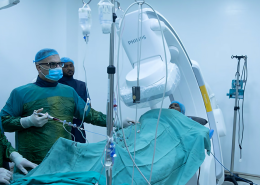Requirements for validity
This certificate is valid only if the vaccine or prophylaxis used has been approved by the World Health Organization.
This certificate must be signed in the hand of the clinician, who shall be a medical practitioner or other authorized health worker, supervising the administration of the vaccine or prophylaxis. The certificate must also bear the official stamp of the administering center; however, this shall not be an accepted substitute for the signature.
Any amendment of this certificate, or erasure, or failure to complete any part of it, may render it invalid.
The validity of this certificate shall extend until the date indicated for the particular vaccination or prophylaxis. The certificate shall be fully completed in English or in French. The certificate may also be completed in another language on the same document, in addition to either English or French.
NOTES
The only disease specifically designated in the International Health Regulations (2005) for which proof of vaccination or prophylaxis may be required as a condition of entry to a State Party, is yellow fever. When administering this vaccine, the clinician must write Yellow Fever in the space provided on this certificate.
This same certificate will also be used in the event that these Regulations are amended or a recommendation is made under these Regulations by the World Health Organization to designate another disease.
INFORMATION FOR TRAVELLERS
During holiday or business travel, it is very common for travellers to encounter diseases which either do not exist or have become rare in the country in which they live. Prospective travellers should seek advice from their physician or health department on measures to be taken to protect themselves from illness. In addition to vaccination against yellow fever, which may be required to enter some countries, protective measures may be advisable against malaria, poliomyelitis, infectious hepatitis, diphtheria, tetanus, and typhoid fever. Other potential health hazards, which although uncommon should not be overlooked, include the effects of unusual climatic conditions, mental strain, diseases resulting from inadequate hygiene, contact with insects and animals, and physical injuries.
Be sure to tell your doctor about any travelling you have done during the previous twelve months when consulting him/her about any illness after you return.
Vaccination requirements – See Information for physicians.
PROTECTION AGAINST MALARIA
Malaria, a serious and sometimes fatal disease, remains endemic in a great many tropical and subtropical countries. You cannot be vaccinated against malaria, but you can protect yourself against mosquito bites (use of mosquito nets, repellents). In addition, antimalarial tablets may be useful, taken regularly for protection and/or kept in reserve for the emergency treatment of a fever if medical care is not available. The risk of infection and the response of the parasites to drugs are variable and changing. You should obtain advice concerning the use of antimalarials from your doctor or from the nearest specialized institution, or from the latest edition of the WHO booklet “International Travel and Health.”
No method can guarantee complete protection. Falciparum malaria, which can be fatal, must always be suspected if fever, with or without other symptoms, develops at any time between one week after the first possible exposure to malaria and three months (or even later in rare cases) after the last possible exposure. You should seek medical attention immediately and tell your doctor that you have been in a malarious region.
INFORMATION FOR PHYSICIANS
- The dates for vaccination on each certificate are to be recorded in the following sequence: day, month, year – the month in letters. Example: January 1, 2018, is written 1 January 2018.
- If vaccination is contraindicated on medical grounds, the physician should provide the traveller with a written opinion, which health authorities should take into account.
- Vaccination certificate requirements of countries are published by WHO in “International Travel and Health.” Information on designated yellow fever vaccinating centers is available from local or national health offices.
- The physician should always consider that his/her patient may have a travel-associated illness.




